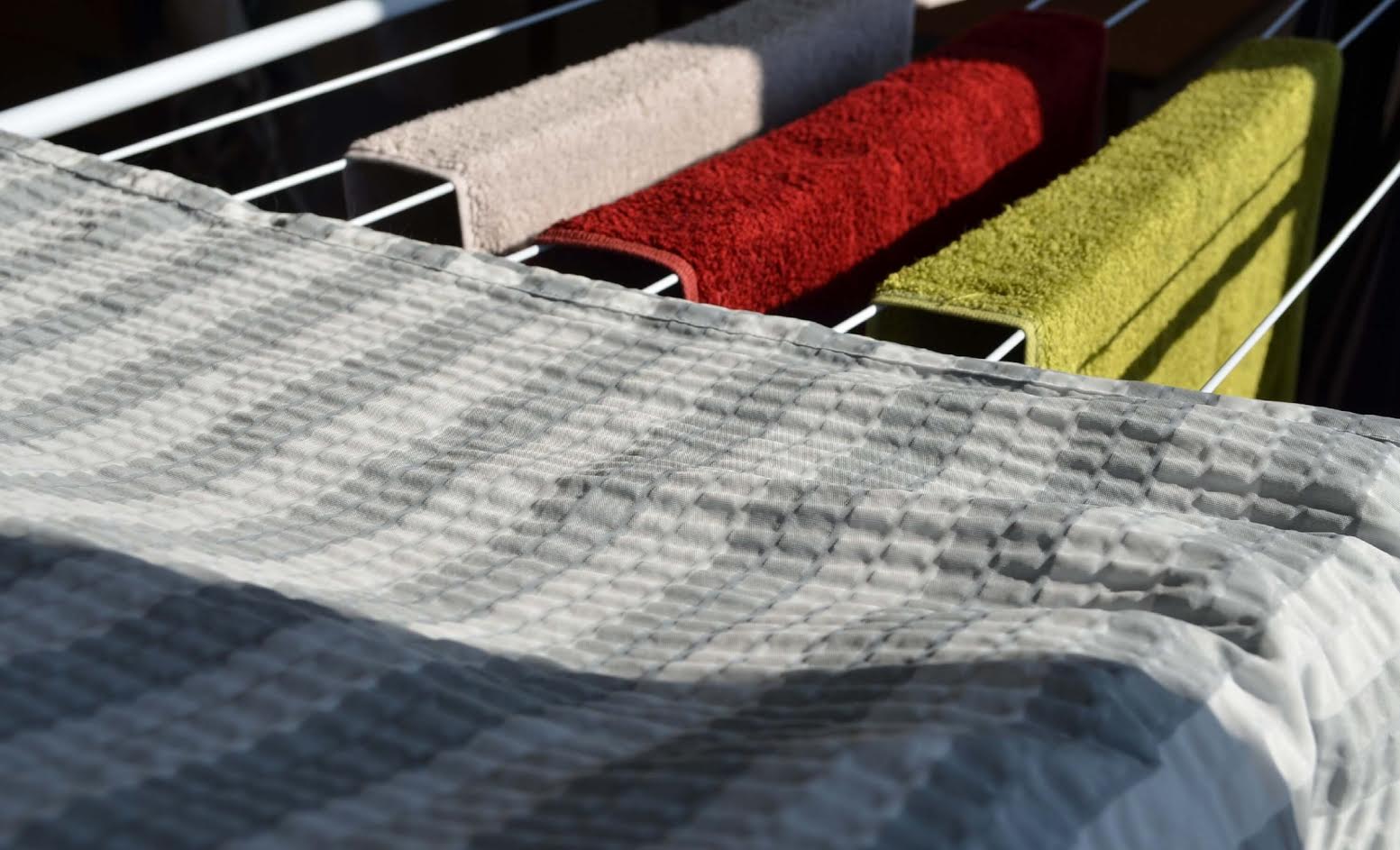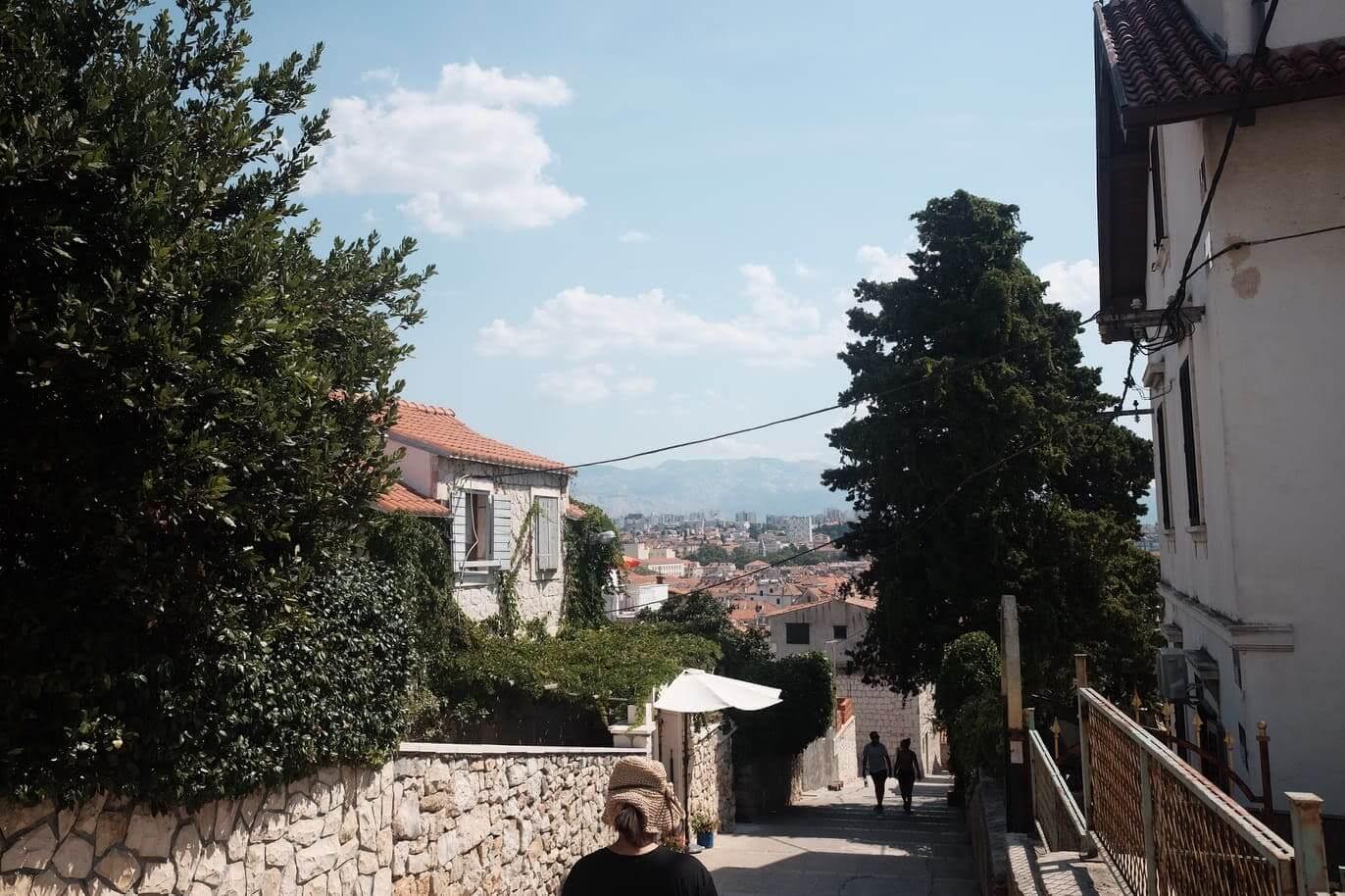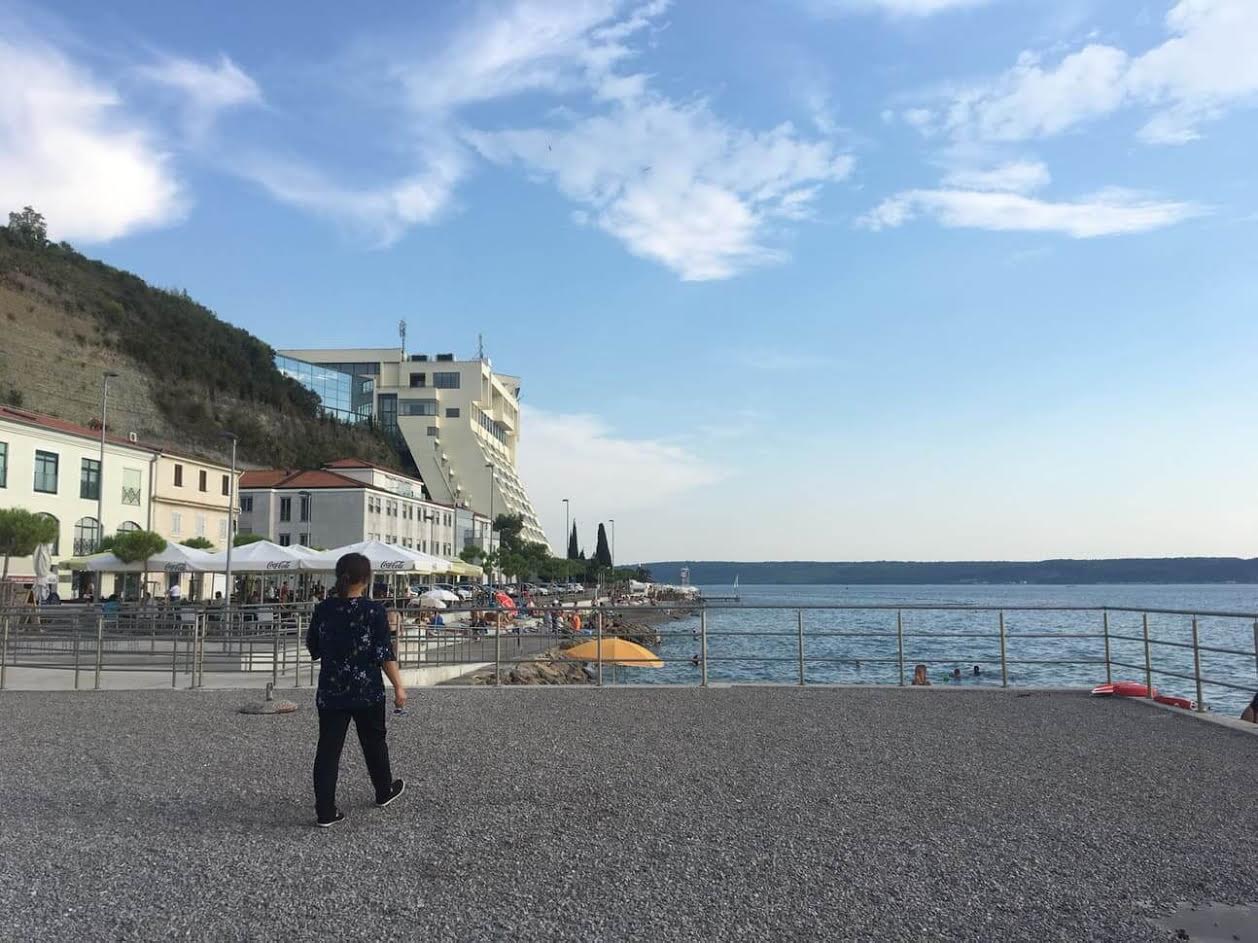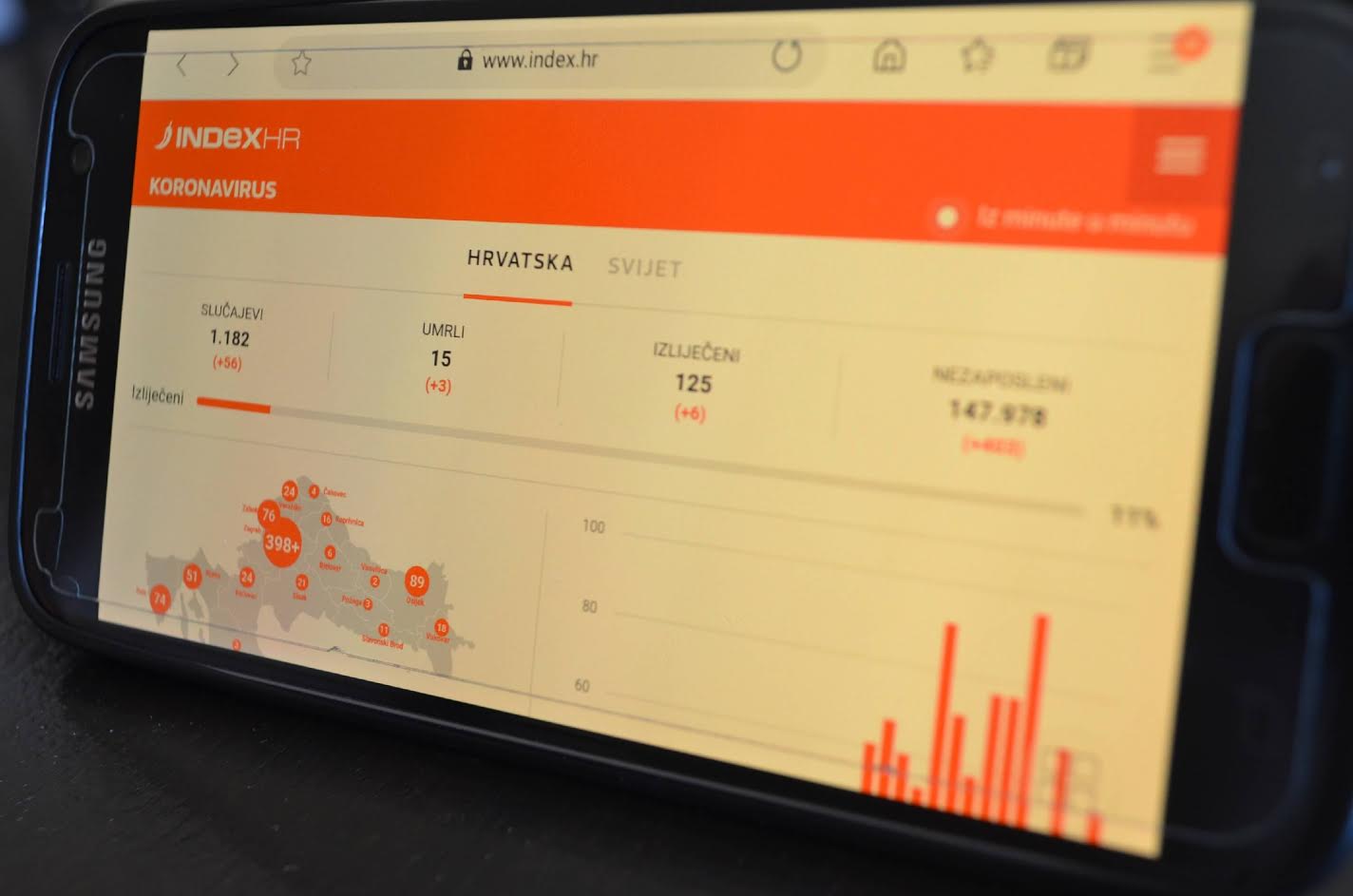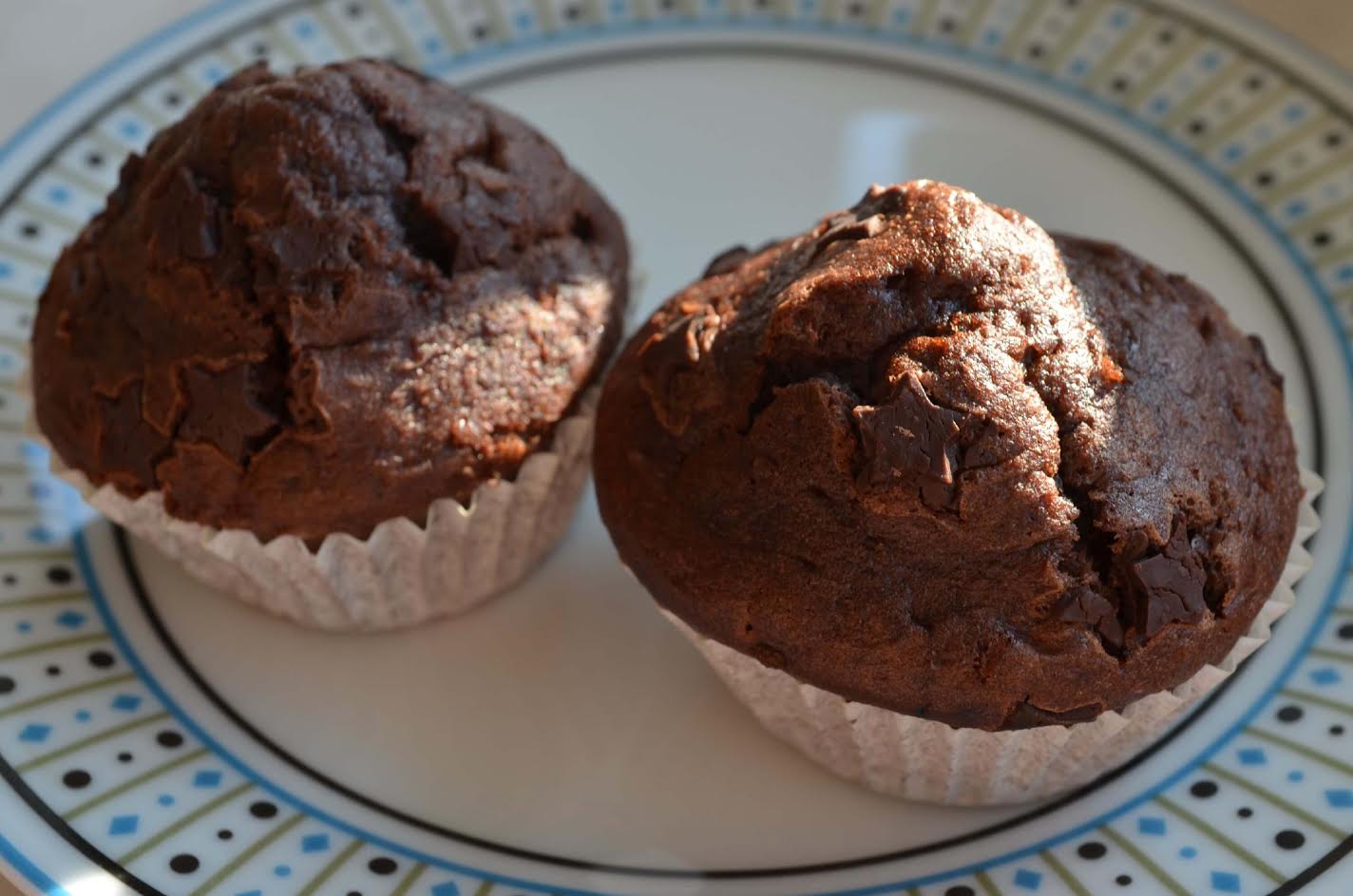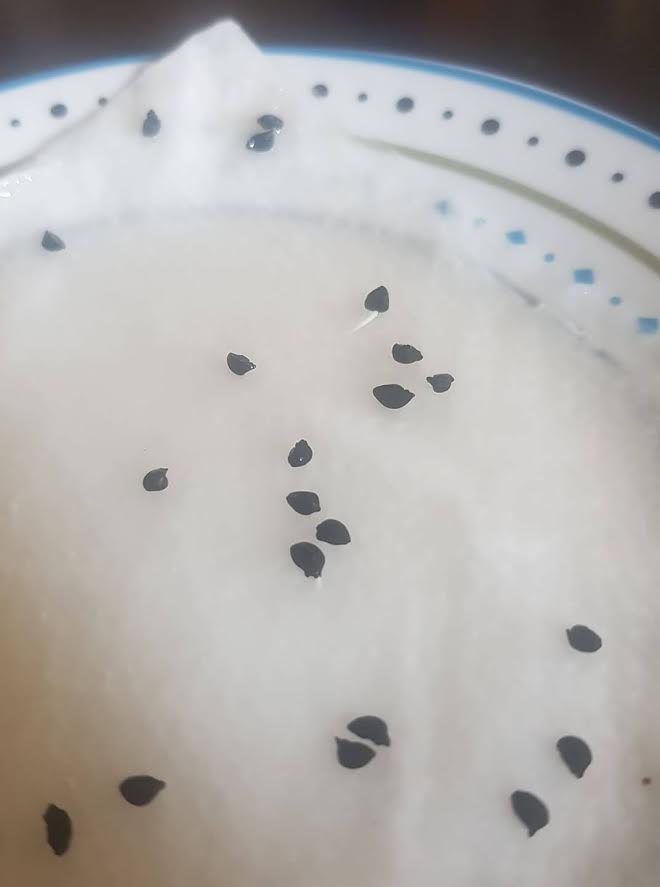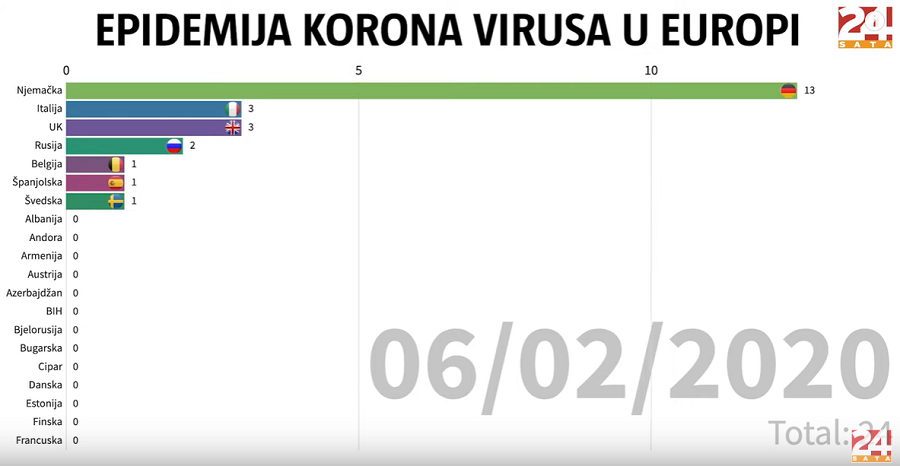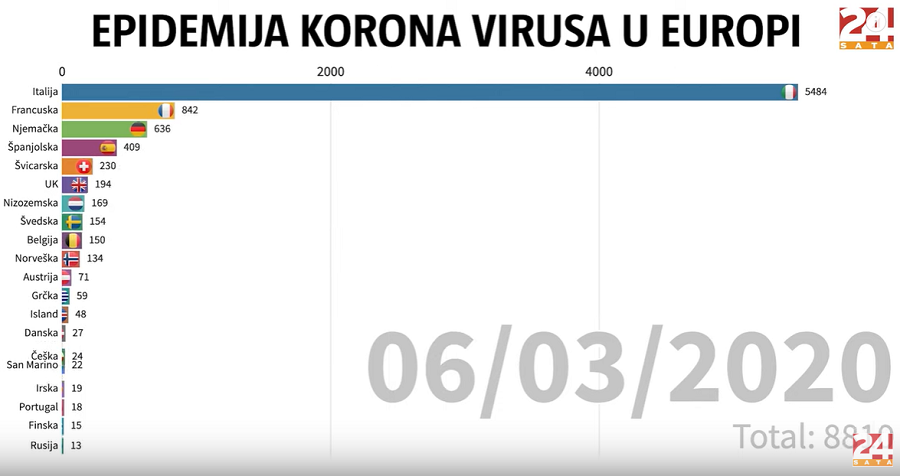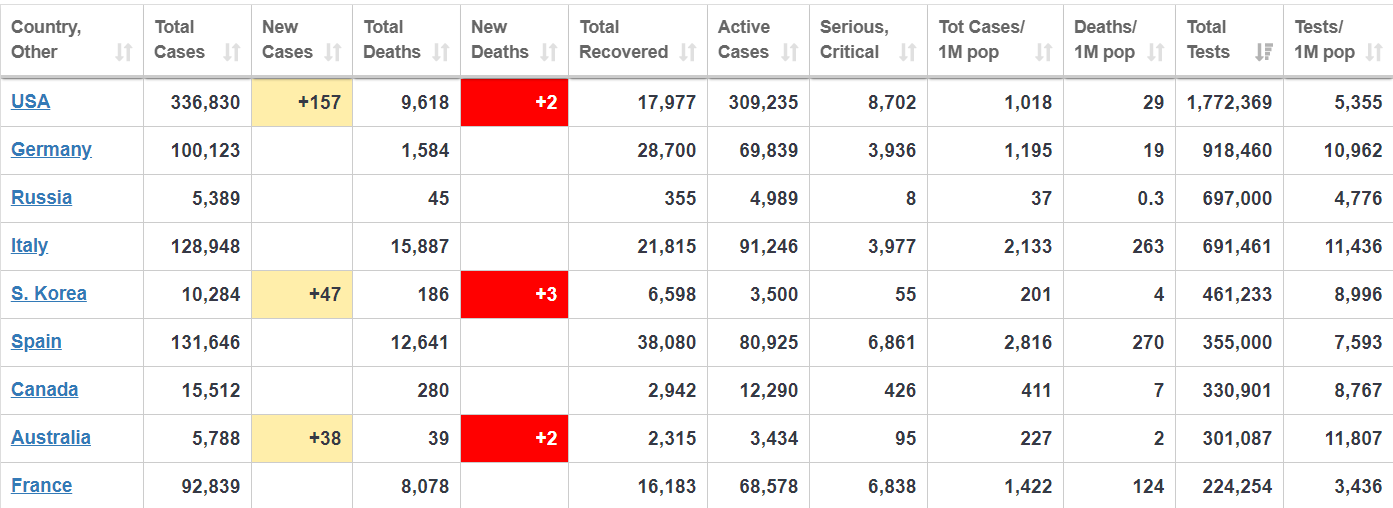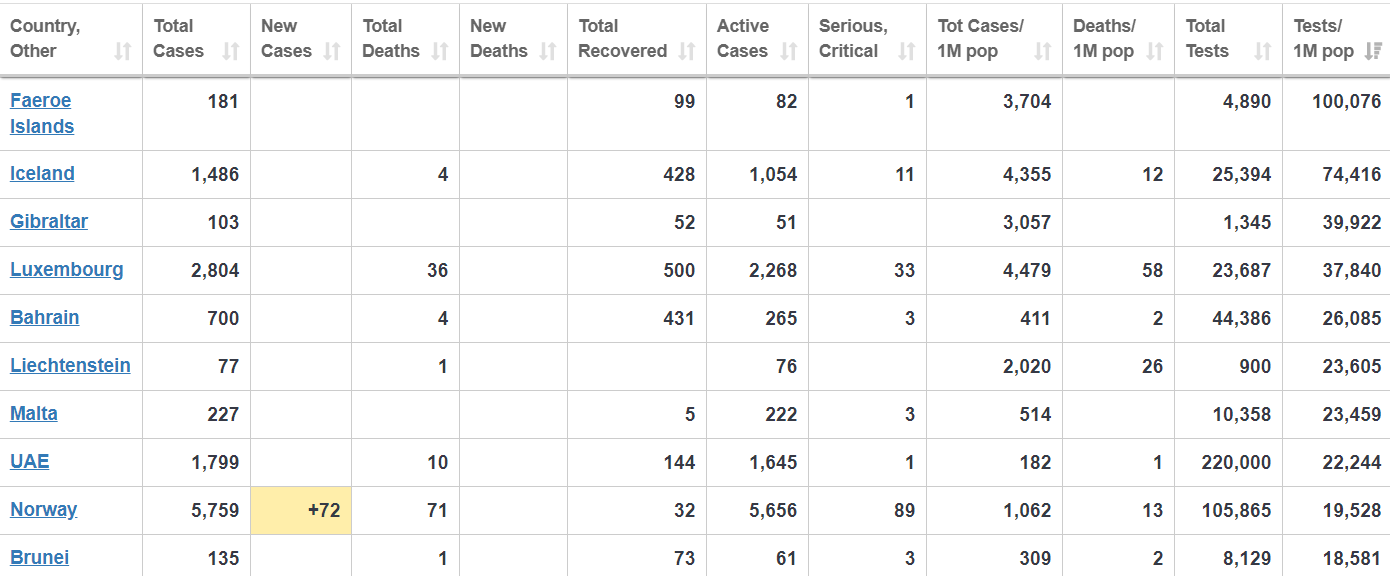Lawmakers Appeal to Government to Help Farmers and Socially Vulnerable Groups
ZAGREB, April 6, 2020 - Croatian lawmakers on Monday again appealed to the government to help local agricultural producers and vulnerable social groups affected by the coronavirus crisis.
Mladen Mađer of the Work and Solidarity Party called on the government to urgently arrange a meeting with retail chains and agree purchases of local produce. He also called for urgent reopening of farm produce markets and for greater flexibility in issuing passes so that farmers can work their land.
"We must allow small family farms to sell their produce or otherwise we will destroy the little production that we have," Mađer said.
Tomislav Panenić of the Independent Youth List also appealed to the government to help agricultural producers and small family farms, saying that online sales would not solve their problems. "The Ministry of Agriculture should be more efficient because amending just one law is not enough," he said.
Social Democratic Party (SDP) leader Davor Bernardić recalled that his party had drawn up a third package of 10 measures worth HRK 1.7 billion (€224m) to alleviate the consequences of the crisis for more than a million socially vulnerable people.
"In just several weeks of the crisis 20,000 have been laid off and another 400,000 fear losing their jobs," Bernardic warned.
Bozo Petrov of the Bridge party also proposed measures to protect the socially most vulnerable citizens, those with blocked bank accounts, the unemployed and seasonal workers. He called for a moratorium on loan repayments and enforcement proceedings. "If everyone else is entitled to a break, then they are too," he said.
Hrvoje Zekanović of the Croatian Sovereigntists party said that the successful establishment of the e-pass system had shown that electronic voting could be organised as well. "Now we can see that it can be done very quickly and easily," he said.
Goran Beus Richembergh, speaking on behalf of the Civic Liberal Alliance (GLAS) and Croatian Pensioners' Party (HSU) group, said that the present situation should not be allowed to be used for stigmatising people and spreading hatred, stressing the importance of preserving the democratic institutions.
More coronavirus news can be found in the Lifestyle section.
Foreigners Self-Isolating in Croatia: Do You Feel Safer? Daeun Hong from South Korea in Zagreb
April 6, 2020 - Do foreigners in Croatia feel more or less safe sitting out COVID-19 here than in their home country, and what are their experiences? A new series on TCN, with Daeun Hong from South Korea in Zagreb as our 27th contributor.
Oxford University recently published some research on government responses to coronavirus which showed that Croatia currently has the strictest measures in the world. While inconvenient, this is a good thing in terms of reducing the spread of the virus, and I am certainly not alone in my admiration of the official Croatian handling of this crisis in recent weeks, both in terms of action and communication.
But what do other expats here think? And how does it compare with the response in their home country? Would they rather sit this one out here or there? In the first of a new series on TCN, we will be featuring expats from all over the world to see what their views are on life in corona Croatia rather than back home. So far we have heard from expats in Croatia from Romania, USA, Ireland, UK, Mexico, Argentina, Spain, Singapore, Holland, Canada, India, Hong Kong, Venezuela, Latvia, China, Honduras, Hungary, Moldova and Germany. Next up, Daeun Hong from South Korean in Zagreb.
If you would like to contribute to this series, full details are below. Now, over to Daeun.
Firstly how are you? Are you alone/with someone? Tell us a little about your situation and sanity levels.
Well, it is like it is. Or, maybe not so good. I'm feeling bored since I can't really leave my house. I am missing going outdoors. Also, that earthquake hasn't left a good memory. I have trauma if I can say it that way because I never felt that before. Since then, I don't sleep with my light turned off.
Although I'm living alone, my Croatian and foreign friends often call me to check how I'm doing. I'm glad to have them in such a situation.
When did you realize that corona was going to be a big issue?
To be honest, I didn't realize this would become such a thing, not even when our faculty closed. But when public transport stopped and when I saw police on the street, telling people they should stay inside, that was the moment I realized that the situation is getting more serious from minute to minute.
What is your impression of the way Croatia is dealing with the crisis? How safe do you feel?
At the very beginning of the appearance of Coronavirus, the Croatian government didn't take it so seriously. They even criticized other countries, how they have problems. I think that is the moment when the government should have taken the first steps to prepare the country for the crisis. My opinion is that they should have made preparations sooner.
And about me feeling safe, well, I feel safe because I'm never leaving my house.
Now compare that to your home country and how they are handling it. What is Croatia doing better/worse?
When I compare South Korea and Croatia, it would be better for Croatian people to take this situation more seriously. Although many Croatians are aware of what they should be doing, I feel like Croatia is not ready for such an epidemic. Our (South Korea) government is doing great work, and the whole medical system is impressive. But at the same time, people there are maybe too relaxed. As they are thinking, they are entirely safe.
What about official communications from the authorities, compared to your home country?
I must say I'm pretty satisfied with government communication with people. I think it's great that every few hours, they publish new information through every single media platform. Also, I have noticed they show their care for Croatians abroad. The South Korean Embassy is also doing a great job. Every evening, they send me new information about flights to my country. Like, the schedule of flights, through which countries I can go to Korea, which time, which airplane companies...
What's the one thing you wish you had taken with you into self-isolation.
Well, I have electricity, internet, mobile phone to communicate with my family, I have food... So, I would say I have everything. Then again, my cat, who is now in Korea, would have been lovely company during these lonely days. And, if I can be 100% honest, I would love to have Korean food around the corner. A whole store, if it is possible. I really miss Korean food.
One thing you have learned about yourself and one thing you have learned about others during this crisis.
In this time of crisis and global epidemic, I realized how precious are the people around me. The same thing goes for a normal life - which I had before all of this mess. I think I have learned to respect more everyday things we take for granted.
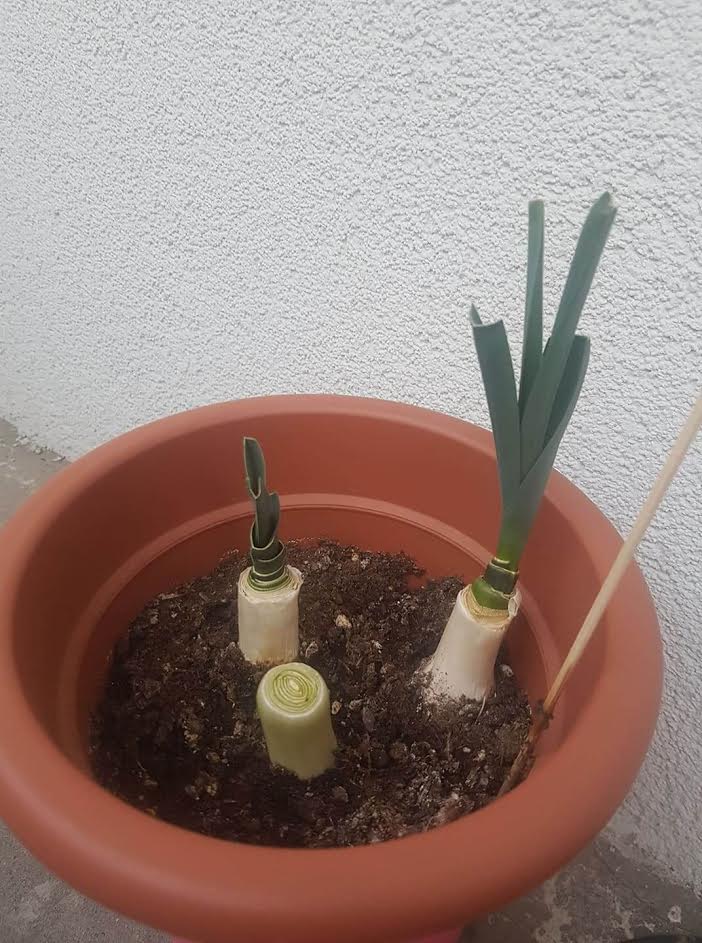
The fruit of boredom: I have planted leeks.
Thanks, Daeun, stay safe and see you on the other side.
TCN is starting a new feature series on foreign experiences of sitting out COVID-19 here in Croatia compared to their home country. If you would like to contribute, the questions are below. Please also include a para about yourself and where you are from, and a link to your website if you would like. Please also send 3-4 photos minimum to This email address is being protected from spambots. You need JavaScript enabled to view it. Subject Corona Foreigner
If you would be interested to record a video version for our partners www.rplus.video please let us know in the email. Thanks and stay safe.
Foreigners Self-Isolating in Croatia: Do You Feel Safer Than in Your Home Country?
Firstly, how are you? Are you alone/with someone? Tell us a little about your situation and sanity levels.
What do you think about the economic measures the government is taking, are they helping your business? (PLEASE IGNORE IF THIS DOES NOT AFFECT YOU)
When did you realise that corona was going to be a big issue?
What is your impression of the way Croatia is dealing with the crisis? How safe do you feel?
Now compare that to your home country and how they are handling it. What is Croatia doing better/worse?
What about official communications from the authorities, compared to your home country?
What's the one thing you wish you had taken with you into self-isolation.
One thing you have learned about yourself, and one thing you have learned about others during this crisis.
TCN has recently become a partner in Robert Tomic Zuber's new R+ video channel, initially telling stories about corona experiences. You can see the first TCN contribution from this morning, my video from Jelsa talking about the realities of running a news portal in the corona era below. If you would like to also submit a video interview, please find Robert's guidelines below
VIDEO RECORDING GUIDE
The video footage should be recorded so that the cell phone is turned horizontally (landscape mode).
There are several rules for television and video news:- length is not a virtue- a picture speaks more than a thousand words
In short, this would mean that your story should not last more than 90 seconds and that everything you say in the report should be shown by video (for example, if you talk about empty streets, we should see those empty streets, etc.).
How to do it with your cell phone? First, use a selfie camera to record yourself telling your story for about a minute and a half. Ideally, it would be taken in the exterior, except in situations where you are reporting on things in the interior (quarantine, hospital, self-isolation, etc.). Also, when shooting, move freely, make sure everything is not static.
After you have recorded your report, you should capture footage that will tell your story with a picture, such as an earlier example with empty streets.
One of the basic rules of TV journalism is that the story is told in the same way as a journalist with his text. Therefore, we ask you for additional effort. Because we work in a very specific situation, sometimes you may not be able to capture footage for each sentence of the report. In this case, record the details on the streets: people walking, the main features of the city where you live, inscriptions on the windows related to the virus, etc.
The same rules apply if you are shooting a story from your apartment, self-isolation, quarantine. We also need you to capture footage that describes your story.
When shooting frames to cover your reports, it is important that you change the angle of the shot (in other words, shoot that empty street from several angles). Also, when shooting a detail, count at least five seconds before removing the camera to another detail.
The material should be about 5 minutes long (90 seconds of your report + frames to cover your story).
After recording everything, send us to Zagreb, preferably via WeTransfer to This email address is being protected from spambots. You need JavaScript enabled to view it.
Documentary Films Made at NP Krka About Old Crafts and Skills
The documentary series called "When I Remember Krka" (Kad se sjetim Krke), directed by Tomislav Krnic, bring about an inspiring look at the cultural treasure that is preserved by the ethno village located at Skradinski buk at the beloved NP Krka.
As Morski writes on the 6th of April, 2020, as modern life continues to accelerate and change rapidly, many an old art, skill and craft is sadly left in the past. Wanting to raise awareness of the extremely rich cultural heritage associated with NP Krka and the Krka river, as well as the way of life of the people who have always lived along the river, the NP Krka Public Institution has produced one long and three shorter documentary films which revive some long-forgotten times through the emotions and memories of local artisans.
Although the main characters are reminiscent of the protagonists of some popular fairy tales, they are real people who have devoted their lives to valuable crafts and have remained attached to NP Krka and the Krka river for many decades of their lives. One of Skradin's oldest residents, 87-year-old miller Mate Zura, testifies in the first film about his craft, which he used to engage in with his father at a mill at Skradinski buk. Thanks to his many years of experience and his wealth of highly specific knowledge, he participated in the restoration of today's watermills at NP Krka.
''I started weaving at the age of fourteen,'' recalls another protagonist, 85-year-old Milka Lukic, in the documentary. Her age didn't prevent her from starting work in a loom on Skradinski buk back in 2002 and transferring her knowledge to two other women, one of whom still lives there today.
The third story is that of Dragan Supa, who comes from a family of blacksmiths from Konjevrat, whose members have been engaged in this ancient craft for the last 160 years.
''We're extremely proud of the intangible cultural heritage of our region that we want to highlight with these films. Numerous visitors to the NP Krka and the ethno villages are given an insight into the former way of life of the inhabitants of the area, as well as the complexity of the crafts which are slowly dying out today. The renovated watermills along the Krka river are monuments of rural construction and economic history, as well as ethnological and ethnographic monuments, precisely because of the way they were used in the past. With these films, we want to appeal to a wider circle of people and to pay homage to the things that have nurtured Dalmatia,'' said the director of the NP Krka Public Institution, Nella Slavica, adding:
''In addition, in these films, we're trying to preserve the crafts that are disappearing into oblivion due to the modern way of life, primarily for the sake of all future generations. So, I'd like to thank the protagonists for showing us some of their skills and the inspiration behind them in an inspiring and motivating way.''
This educational-documentary series, directed by the Sibenik director and screenwriter Tomislav Krnic and produced by Digital Media Studio 24/7, is available here.
Follow our lifestyle page for more.
Croatian Employers on Crisis: State Must Not be Late With Payments
As Poslovni Dnevnik writes on the 6th of April, 2020, a second package of economic measures to help the economy deal with the negative consequences of the coronavirus pandemic showed that the Government had accepted the pleas and requests of Croatian employers, who now have a clearer picture of how to plan their businesses, and their employees are now more confident that they will have their jobs preserved and their income guaranteed.
At this point, with the top priority being that the measures are properly adopted are effectively implemented, it is important for the Croatian Government to remain financially disciplined and to actually stick to strict payment timelines.
“A large number of businesses are working with the central and local government to ensure the smooth delivery of the necessary goods and services even in times of crisis. Wholesale drugstores, pharmacies and contracting healthcare entities are under special pressure due to the epidemic and huge efforts are being made to maintain not only business but also liquidity. Thus, financial discipline is extremely important because the very delay of the state could generate general illiquidity and, in the case of wholesalers, difficulty in the supply of medicine, which is crucial for the health system at the moment,'' said Davor Majetić, CEO of the Croatian Employers' Association (HUP)
Croatian employers will do everything they can to help preserve jobs while retaining the core of our businesses, so that after the crisis, we can launch an economic recovery more quickly and more efficiently.
We will also continue discussions with the government on further measures, first of all, on para-fiscal levies at both the national and local government levels. Non-tax duties and fees are a longstanding thorn in the side of our economy. Now, during the crisis, the payment of as many of these fees as possible should be frozen and an audit should be initiated immediately so that this part is finally and permanently abolished and the other part is significantly reduced,'' a statement from the Croatian Employers' Association said.
Make sure to follow our dedicated section for all you need to know about coronavirus in Croatia.
Krunoslav Capak Discusses Coronavirus Testing, Protocols in Other Countries
As Poslovni Dnevnik writes on the 6th of April, 2020, the director of the Croatian Institute of Public Health, Krunoslav Capak, was interviewed by RTL Today (Danas) and explained in detail who is being tested for coronavirus and by what criteria, because that is one of the most common questions being asked by people up and down the country.
"From the very beginning, we've followed the guidelines of the European Centre for Disease Control and Prevention, as well as the World Health Organisation. It was first said that we needed to test persons who were in contact with a coronavirus positive person or who resided in focal areas and who developed symptoms. Later on, the ECDC changed its instructions and said to test for any serious respiratory disease and then it did so again ten days ago, in saying that we need to test for any acute respiratory disease for which no other cause could be identified,'' Capak told RTL.
An error in assessment may occur, especially when someone is diagnosed over the phone as is being done now, but that is why the coronavirus suspect can always call another doctor or another epidemiologist for a second opinion in each case of suspicion.
Krunoslav Capak also announced that a population-wide study will be done in the Republic of Croatia to see if anyone may have recovered from COVID-19.
"It will definitely work. A few days ago, we launched a literature review to see what that looks like and how it's done in other countries. We know for sure about the Yokoham cruiser, where there were a lot of positive test results, and the percentage of those who didn't even have any symptoms were quite high, but these are special conditions.
No population studies have been launched yet, but we will certainly do it. There are two ways to do this: either take one whole area and inspect people or conduct a so-called sentinel study, where all patients under the care of one general practitioner are studied and a profile is made,'' Krunoslav Capak explained.
For more on coronavirus in Croatia, follow our dedicated section.
24Sata.hr Coronavirus Interactive Graph Charts Daily Spread of COVID-19 in Europe
April 6, 2020 - Award-winning Croatian news portal 24Sata.hr produces a coronavirus interactive graph charting the daily spread of COVID-19 in Europe.
Being in self-isolation, it is hard to judge, but it seems to me that a significant proportion of the human race has become addicted to statistics and charts over the last two months.
How many new cases, how many deaths, is that curve getting flatter - that kind of thing.
Or perhaps it is because of my job running a news portal that I have this feeling, since I am forced to leave and breathe it (behind a mask of course), 24 hours a day.
And speaking of 24 hours, award-winning portal 24Sata.hr has come up with perhaps the most addictive stat counter yet - a coronavirus interactive graph, charting the daily spread of COVID-19 in Europe.
The coronavirus interactive chart, which charts the growth of confirmed cases on a daily basis, is addictive, if very uncomfortable, viewing.
You can, of course, pause the video and see how things were at a given time. Let's take ourselves back to two months ago from today.
Europe looked a little different back then.
Fast forward a month until March 6, just one month ago.
How things will look one month later, we will see next week, as I understand that this coronavirus interactive graph will be updated weekly.
For now, you can view the spread of COVID-19 in Europe from January 31, 2020 to April 3, 2020.
Svaka cast to Boris T. and the 24Sata.hr team - I would have preferred that the topic was a happier one, such as number of returning tourists. Perhaps we will have that too one day.
You can follow all the updates, as well as see more video content from the 24sata team on their official YouTube channel.
For the latest on the coronavirus crisis in Croatia, follow the dedicated TCN section.
Highest Sales Growth Recorded in Second Week of March
ZAGREB, April 6, 2020 - The results of an analysis of consumer behaviour in Croatia during the coronavirus epidemic, conducted by the global data analytics company Nielsen, have shown that the highest sales growth was recorded in the second week of March and that there are six stages of consumer behaviour during this crisis.
The first stage is proactive health-minded buying, which started at the end of February.
The first case of the coronavirus infection in Croatia was confirmed on February 25, and already in the week from February 23 to February 29 there was a significant increase in the sales of certain products compared to the same week last year. For example, tinned fish had a sales increase of 159%, pasta of 114%, flour of 108%, and rice of 97%.
The highest sales growth occurred in the second week of March, from March 9 to March 15, when retail chains saw an average increase of 65% on the year in the shopping basket value.
According to Nielsen, shoppers then entered the second stage of consumer behaviour - pantry preparation.
In that period, the sales of flour rose by 410% on the year and the sales of rice by 301%. When it comes to drugstore products, soap saw a sales increase of 232%, and toilet paper of 162%.
Nielsen says that in the third week of March, from March 16 to March 22, sales growth rates slowed down due to a decline in store visits and operational restrictions in the retail sector.
The decline in store visits did not result in lower consumption, and the shopping basket value had an increase of 46% on the year. That was the third stage - quarantined living preparation.
Nielsen says that we are currently in the fifth stage, restricted living, which will be marked by demand for online shopping services and when everything will depend on high delivery standards.
The final, sixth, stage will be when people return to their daily routines and that will be living a new normal, Nielsen says, adding that consumers will focus more on their health and hygiene practices.
The concern shared by consumers in Croatia and around the world, as well as the effect of new behaviour will decrease over time, but it will not go away completely. Companies that recognise that as soon as possible and adapt to new needs will succeed, Nielsen said.
More coronavirus news can be found in the Lifestyle section.
Croats Repatriated from Austria, Italy
ZAGREB, April 6, 2020 - On Sunday evening, 111 Croatian nationals were repatriated from Tyrol, Austria as well as 22 from Ancona, Italy, the Foreign Ministry said in a press release.
The Croats returned from Tyrol, which is quarantined, in six buses and four cars to the Bregana border crossing, where they were checked by epidemiologists and instructed to self-isolate.
The Foreign Ministry thanked the Austrian authorities for approving the repatriation and said it would continue to work on the repatriation of Croatian nationals who happened to be abroad during the COVID-19 pandemic.
A Jadrolinija catamaran docked in the Zadar port with 36 passengers, including 22 Croats, where epidemiologists took swabs, measured their temperature and instructed them to self-isolate for 14 days.
The other passengers were 11 Montenegrin citizens, one Bosnian, one Italian and one French citizen. The Italian and French citizens will stay in Zadar County while the others will be escorted to the border by police.
The repatriation from Ancona was organised by the Croatian government.
More coronavirus news can be found in the Lifestyle section.
How Does Amount of COVID-19 Testing in Croatia Compare Globally?
April 6, 2020 - How does the amount of COVID-19 testing in Croatia compare with the rest of the world? A look at the numbers via the data of Worldometers.info.
The response to the coronavirus pandemic has elicited very different responses from a number of countries. The lockdown in China has proved extremely effective, whereas the more relaxed approach of Sweden is perhaps the most controversial strategy for a country trying to fight corona without major disruption to the economy. As we are living in a great unknown, far be it for me to judge who has the right or best approach, certainly at this stage.
One topic which is discussed at length is testing. Is there enough testing, and how many tests have been conducted in a given country.
As one has come to expect form the fantastic Worldometers.info website, there is a column of global data for that. Actually two, total tests and number of tests per 1 million population. So where does Croatia sit in all this?
President Trump no doubt likes this chart, with the United States the clear leader in the number of tests conducted (which will, of course, be a large contributing factor to the large number of confirmed cases in the US). At almost 1.8 million tests, this is almost twice as many as the next country, Germany.
He is probably less likely to talk about this chart, which puts the 5,355 tests per million population in the States at number 41 out of the 208 countries being tracked.
And Croatia? There is concern at the last of COVID-19 testing in Croatia in some quarters.
According to the data provided, 10,874 tests have now been conducted in Croatia, which places Croatia 63rd in the table of tests conducted.
Croatia is, of course, a small country, and it jumps 10 places to 53 in the table of number of tests per 1 million people - 2,649.
The website has now added a dedicated page for Croatia, where you can see more detailed data about the current situation here.
For the latest on the coronavirus crisis in Croatia, check out the dedicated TCN section.
(VIDEO) On this Day 31 Years Ago, Jugoplastika Became European Champions
April 6, 2020 - While we may not have any new sport to watch on TV, for the time being, we do have the memories of our beloved teams. On this day, 31 years ago, we remember the reign of Jugoplastika in Europe.
Time flies, but the memories remain - and some last a lifetime. For many Croatian basketball fans, the time Jugoplastika won the European title for three consecutive years (1989, 1990 and 1991) would be categorized into flashbacks worth remembering.
Thus, on this day, April 6, 31 years ago, Jugoplastika started their championship series, reports Dalmatinski Portal.
Several anecdotes from that 1989 and making it to the Final Four in Munich have been told many times. In the company of Barcelona, Maccabi and Aris, no one mentioned Jugoplastika, let alone give the team a chance for success. Split was fourth in all books of protocol, and coach Bozidar Maljkovic said that the team had invented the word 'outsider'.
However, Jugoplastika defeated Barcelona 87:77 in the semi-final that year, and then Maccabi 75:69 in the final. Nobody slept in Split that night. More than 150,000 people took to the streets to welcome the sensational champions. Under the leadership of Bozidar Maljkovic, the first European Championship title in 1989 was won by Luka Pavicevic, Dusko Ivanovic, Toni Kukoc, Dino Rada, Goran Sobin, Zoran Sretenovic, Velimir Perasovic, Zan Tabak, Teo Cizmic and Ivica Buric.
Dino Rada published a status on his official Facebook page in 2018 about his days at Jugoplastika and this exact moment.
“I cannot give this team just one post. A little on 1989 and the European Champions Cup. As total outsiders, we were not even aware of how we got into it,” Rada began.
“The reception in Split was something unimaginable. When the plane was landing, we could see a column of cars to the city. They would not let us leave the building because there were even more people. The airport was blocked. There were no departures or arrivals. We managed to climb the roof of the building to the airport and show the trophy to the people.
As it was not possible to get out, they sent a bus to the ramp and to the exit where only the military planes go, and we went to the hangar on the upper road. A whole bunch of people and cars followed us.
The entrance to the city was a spectacle. At every window of the Jugoplastika factory, there were people with flags and transparencies. All the streets were crowded. We started at 5.
We came to the tunnel and were stopped by the police. They said you couldn’t go to the Riva. We insisted and they said that they would let us, but there is no chance that any army would allow the bus to pass.
They transferred us directly to Gripe. Today we are sorry that we could not come to the Riva. Somehow, some people managed to go to Gripe and then there was a moment I will never forget. And now, tears well my eyes. When we exited the bus, an old woman in her 70s came to us and kissed each of our hands and said, ‘Thank you kids, thank you, kids’. I have no idea who that woman was. She is probably not even alive anymore to read this, but that thought will never leave my head as long as I am alive.
In the Gripe hall again, there was madness. They thought Gripe had never been fuller and would never be that full again. If it usually fits 3,000 people, and that night was probably 5,000. They were packed in liked sardines. They all came to see the Cup. They called us one by one and when Dusko came with the trophy, there was a stampede. How we survived, I have no idea.
Those couple of days were unbelievable. We had to wake up very quickly. We had a match against Vojvodina. For us, the game didn’t matter, but if they lost, they’d fall from the league. The trophy of the Champions Cup was in the center and they started messing around: ‘Come on, don't play one hundred percent'. Yeah, right. Who would lose with such shame,” Rada recalled.
Tor read more about sport in Croatia, follow TCN's dedicated page.

